Best USB microphones 2022
Get the best USB microphone for your recording needs, be it vlog, podcast, music and beyond

Sign up to receive the latest news, reviews, buying guides and deals direct to your inbox
You are now subscribed
Your newsletter sign-up was successful
The best USB microphones bring the quality of high-end audio recording into a simple-to-use computer peripheral. That means you don't need to shell out on an XLR microphone and preamp like you'd find in a studio – yet you can still get high-quality audio end results.
All that means that the best USB microphone can be used both by beginners – as they're simple to setup and use – but also by professionals. So if you're a podcaster, vlogger or musician then you may find that the best USB microphone for you will do the job without costing you too much. These are ideal for those just starting out as well as anyone more seasoned at audio recording.
For those recording in one place a cardioid mic, which aims forward, serves the purpose. For anyone looking to record the room, or two-people opposite each other, then a stereo, bidirectional or omnidirectional mic may be needed.
Pairing your chosen USB microphone with a decent audio editor is important so be sure to check out our guide to the best audio editing software. For musicians the best beat making software is also worth a look.
Once you've got your mic, you've got your editing software, are you good to go? It's worth also looking into a pop shield, to avoid distortion. A sound absorbing panel is also worth considering to give that studio quality finish, especially if you're in an echo-prone space.
Best USB microphones 2022
Why you can trust Top Ten Reviews
This list breaks down the very best USB microphones out there right now with a range of types, prices and stand-out features. They're organized clearly so you can pick out the one that suits you. If it's not on this list then you likely need not look into it as these are the best and most well-priced options you can buy right now.
1. Apogee HypeMic: Best USB microphone overall
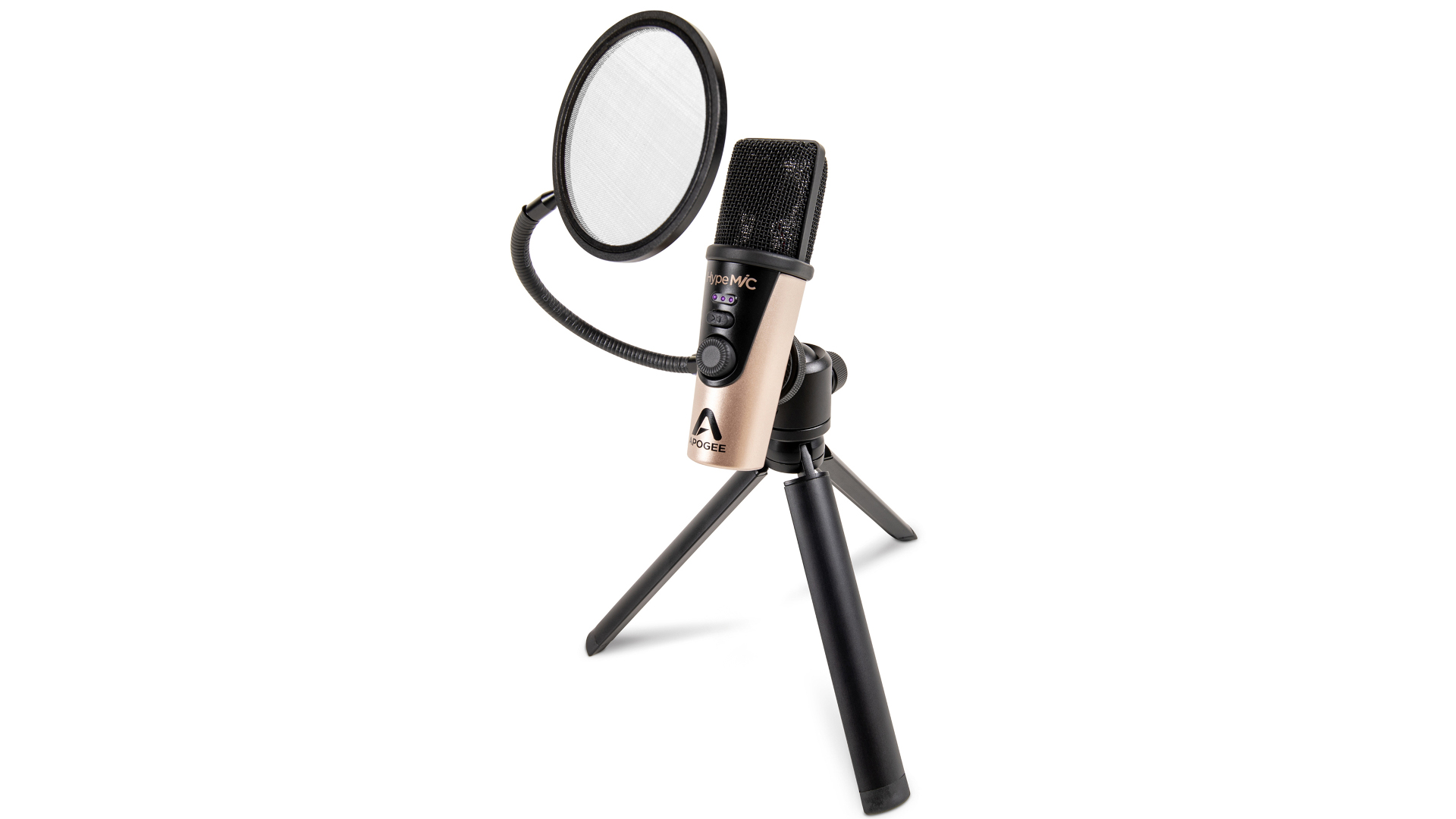
Specifications
Reasons to buy
Reasons to avoid
The Apogee HypeMic blurs the lines between professional XLR microphones and USB microphones to give you the best of both worlds. That means top-end 24-bit and 96kHz recording quality but with a simplicity to use that means this can plug right into your computer or even iOS device.
The catch? This isn't cheap. But it's high-quality with a reassuring weight, useful physical controls like a gain knob and status LED, plus 3.5mm headphone output for zero-latency monitoring.
This cardioid microphone has lots of presets meaning it works well for musical vocals as much as for podcasting or vlogging. It also comes with a useful stand and pop-shield making it portable while still getting you that studio quality finish wherever you find yourself.
The rare analogue compression of this mic sets it apart from the other USB microphone competition, which helps to justify the price. For those that want premium audio recording, this is the way to go. That said, there is a pricer option that some may find even higher quality in the Shure MV7 which also has XLR, but more on that lower down the list.
2. JLab Talk Pro USB Microphone: Best affordable option
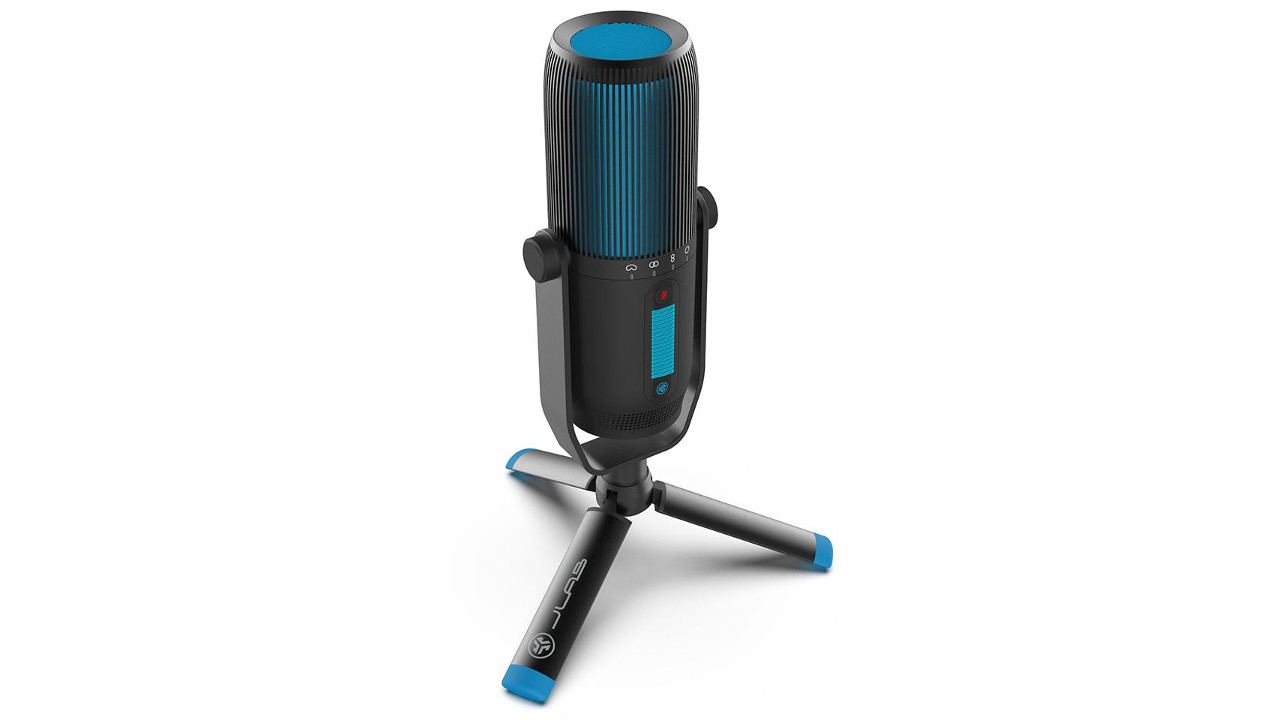
Specifications
Reasons to buy
Reasons to avoid
The JLab Talk Pro manages to keep its price relatively low while still cramming in lots of features and quality recording abilities. That means you get three condensers for cardioid, omnidirectional, bidirectional and stereo recording. So if you need a mic that can go anywhere and serve all kinds of needs, this is the one.
From recording a podcast alone to an interview on a vlog, to audio when out in the field – this will do it all. Crucially it does this with a 3.5mm audio out so you can monitor with zero-latency. It also offers valuable physical controls for volume and gain while displaying recording levels on the LED front display.
With 192kHz and 24-bit audio recording the quality of this is pro-level and the 10-foot braided cable included helps make this easy to use in your setup. How this all manages to stay under $100 is hard to grasp as this is a super powerful, impressive performing USB microphone.
3. Audio-Technica AT2020USB+: Best for build quality
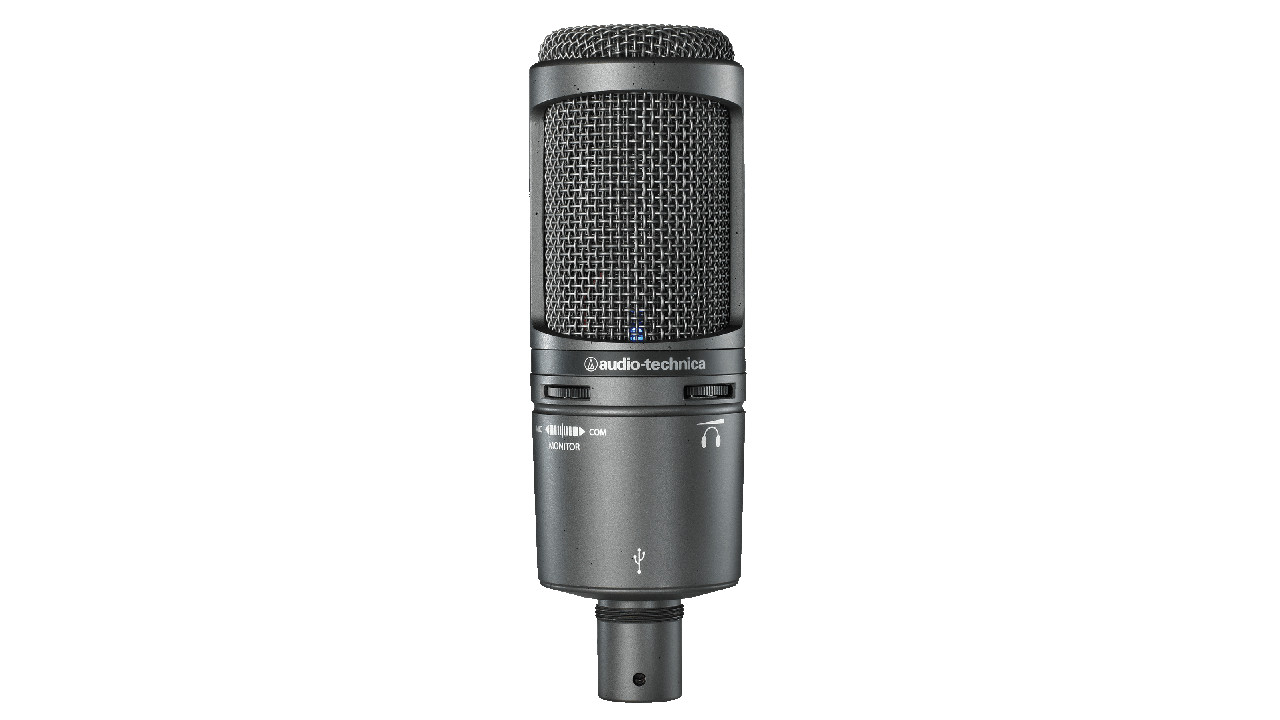
Specifications
Reasons to buy
Reasons to avoid
The Audio-Technica AT2020USB+ microphone comes from a brand synonymous with quality and there is no difference here. The weighty microphone comes packaged with a plush bag, tough cable and metallic build quality that all feel pro-grade. Inside this theme continues with the fixed-charge back plate and permanently polarized condenser.
Capable of 16-bit and 44kHz quality, this might not have the numbers of some but the quality is fantastic thanks to the A/D converter hardware taking that sampling rate to its max.
You also have physical volume and monitor controls, useful when using that zero-latency headphone monitoring setup. The tripod is a little flimsy and takes some fiddling to get right. But with little else to complain about this is a powerful microphone for the money.
4. Shure MV7: Best dual USB and XLR microphone
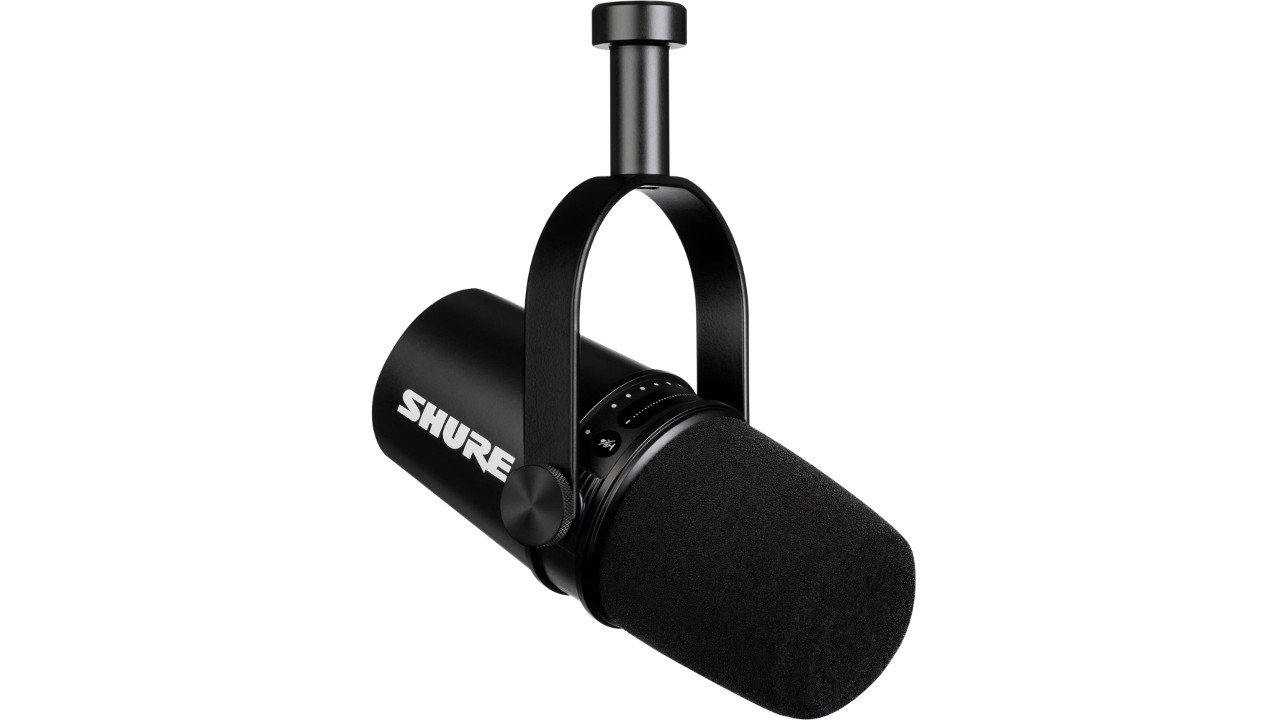
Specifications
Reasons to buy
Reasons to avoid
The Shure MV7 is the microphone for anyone that wants both USB and XLR connectivity. As such it's also one that offers premium quality and professional level performance. The price reflects that as the most expensive on this list.
This is a microphone that's designed specifically for podcasting, meaning its single condenser cardioid build is made for forward facing with a single voice input. the fact this lets you record in both USB and XLR, at the same time, is fantastic as it can mean two quality recordings. A lower quality version is useful for editing and testing – a real pro-level feature here.
5. Beyerdynamic Fox: Best for quality on a budget
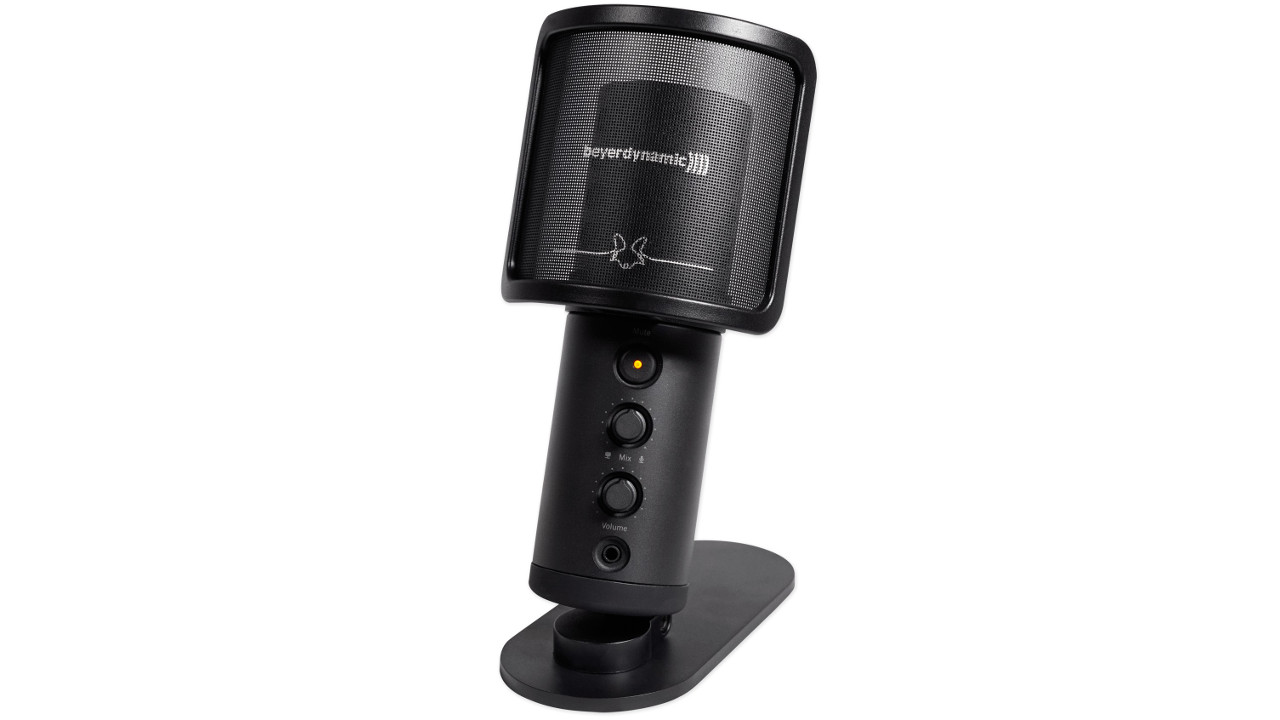
Specifications
Reasons to buy
Reasons to avoid
The Beyerdynamic Fox is another affordable microphone that offers far more than the price would have you expect. From a solid metallic build quality to an included pop filter, this immediately stands out. The audio does the same with high-quality 96kHz and 24-bit recording.
There are physical controls for volume and gain and you also get a zero-latency monitoring setup thanks to the 3.5mm output. Details like the orange USB cable – making it easy to spot in a bag – show how above-and-beyond this manufacturer goes when it comes to attention to detail.
Everything is super portable and easy to use making this great for anyone on the go a lot that wants pro-level audio but in a package that's easy to use anywhere.
6. Trust Rudox GTX 259: Best for gamers and podcasters
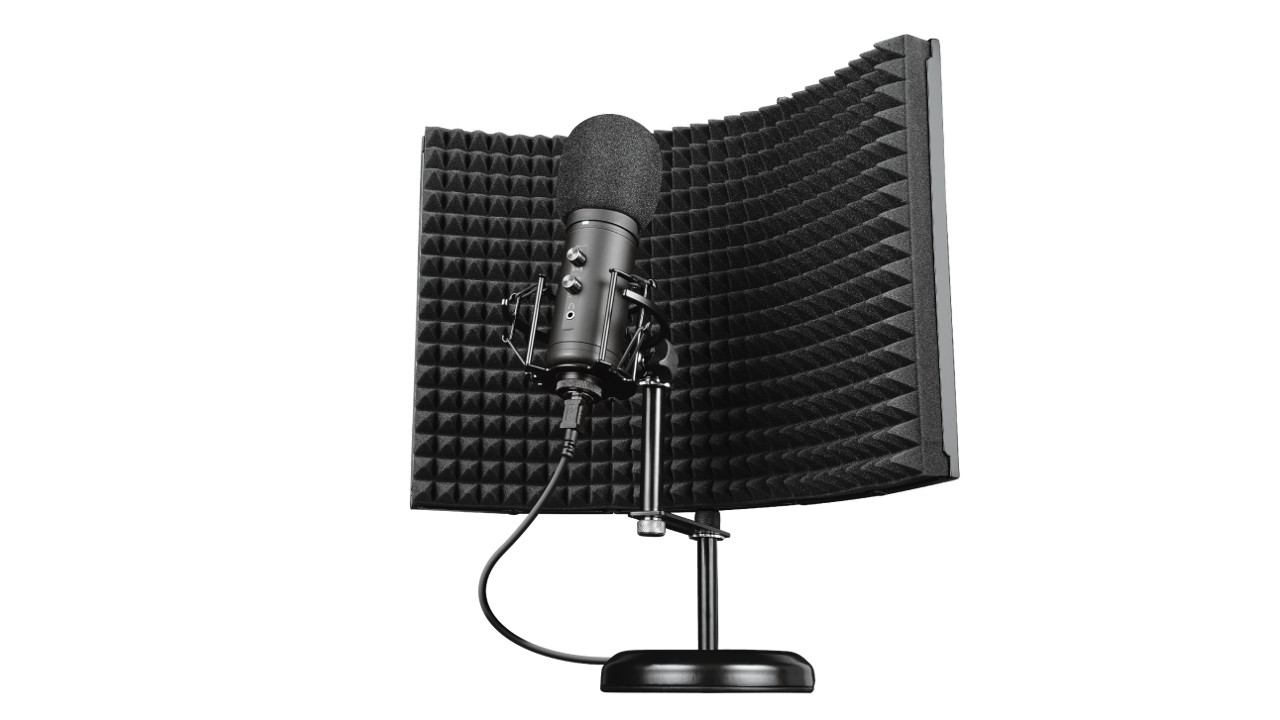
Trust Rudox GTX 259
Our expert review:
Specifications
Reasons to buy
Reasons to avoid
The Trust Rudox GTX 259 is a standout option as the price includes a useful reflection shield. That makes this single cardioid microphone superb for podcasters and gamers that want the clearest vocal audio possible. Even in larger spaces, or those with background noise like a machine running, this will shield the mic to focus only on the voice being picked up.
The stand is of a high quality with a reassuring weight. It's all super simple to setup and get running right away and the controls are physical, making it easy to use and tweak to ideal settings. Despite all these features this stands at a similar price to a lot of the competition making it a really compelling option.
7. Blue Yeti Nano: Best budget microphone
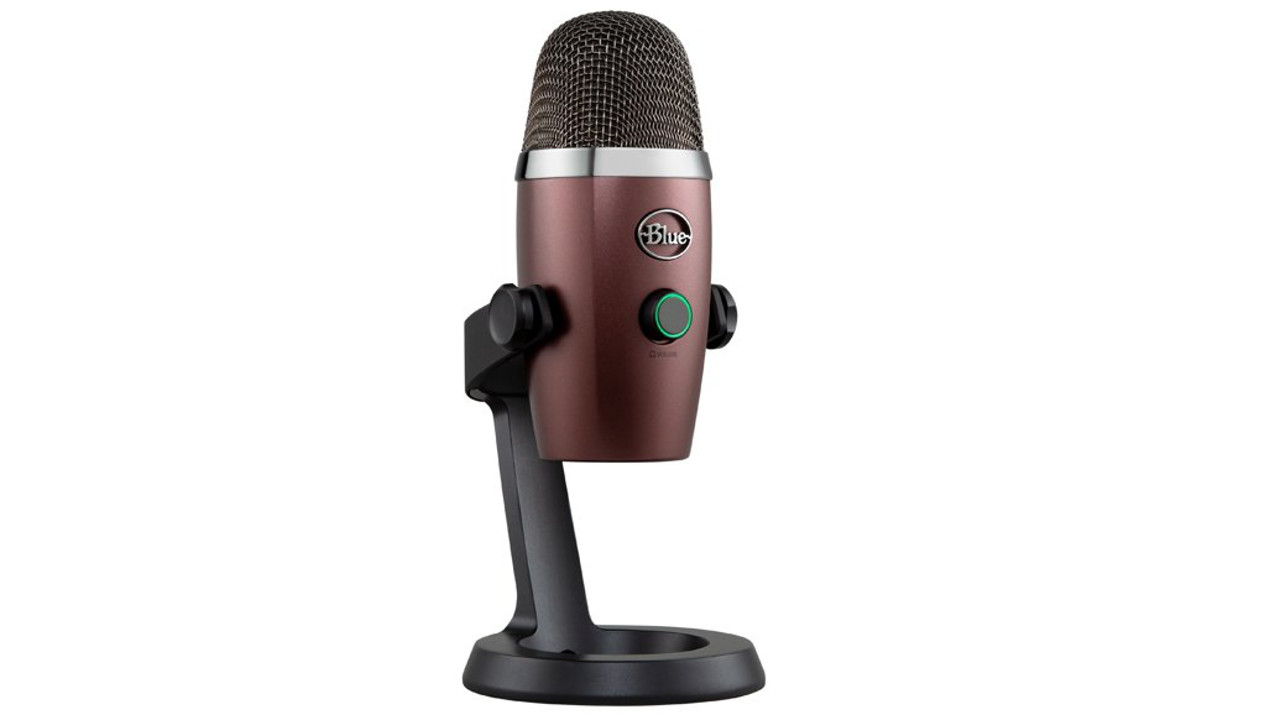
Specifications
Reasons to buy
Reasons to avoid
The Blue Yeti Nano is a sub-$100 USB microphone yet it still offers professional grade audio at 24-bit recording quality. Using analogue recording this quality can be heard immediately.
This features two condensers with cardioid, for podcasting, and omnidirectional, for most other uses, both included making this very versatile. The modes can be switched using a physical button and there is also an LED to make you aware of how it is working. More controls for volume and gain would have been a welcome addition though. There is an app dedicated to this which may work just as well for many people who have that setup.
Sign up to receive the latest news, reviews, buying guides and deals direct to your inbox
Luke is a veteran tech journalist with decades of experience covering everything from TVs, power tools, science and health tech to VPNs, space, gaming and cars. You may recognize him from appearances on plenty of news channels or have read his words which have been published in most tech titles over the years. In his spare time (of which he has little as a father of two) Luke likes yoga, surfing, meditation, DIY and consuming all the books, comics and movies he can find.

